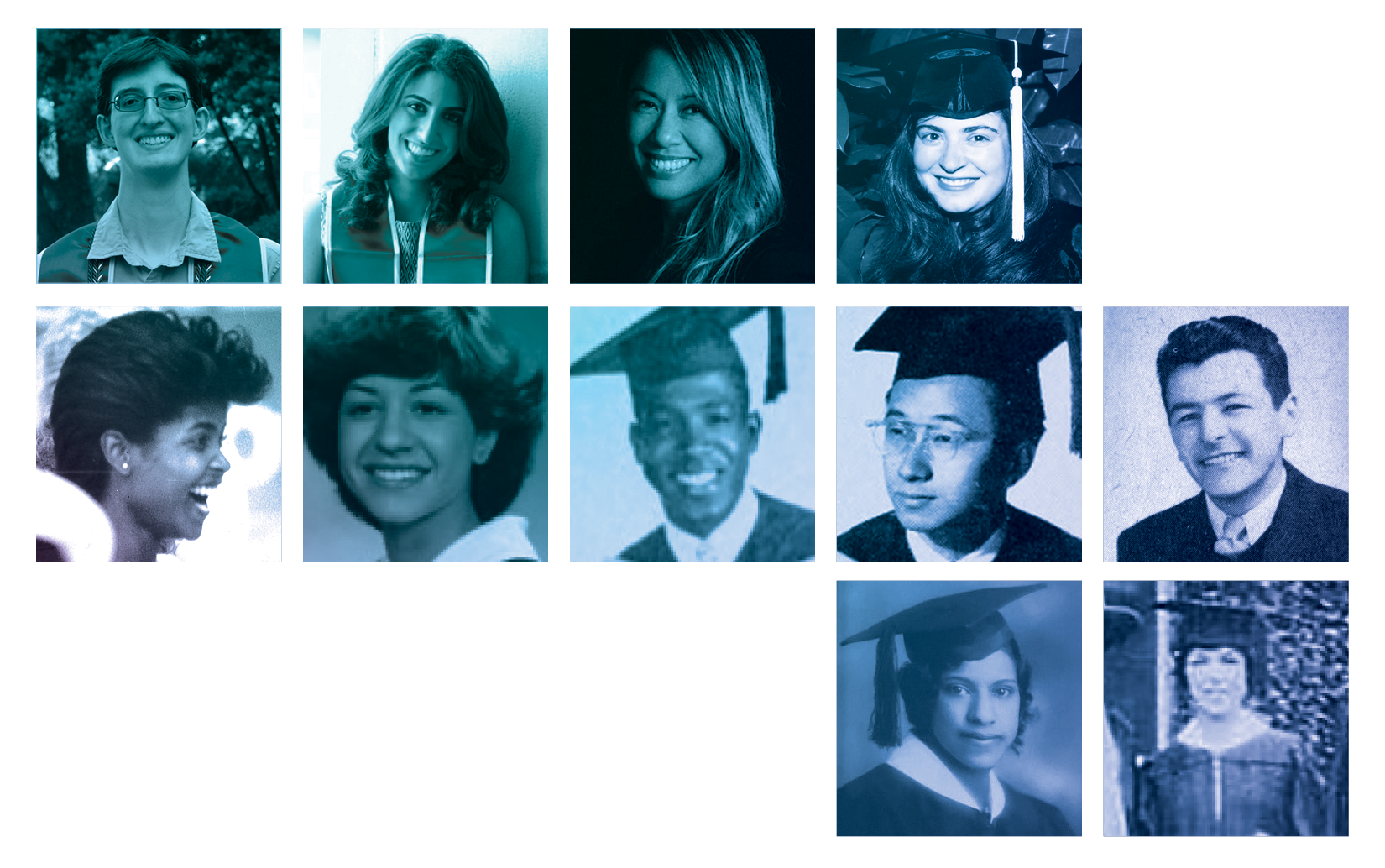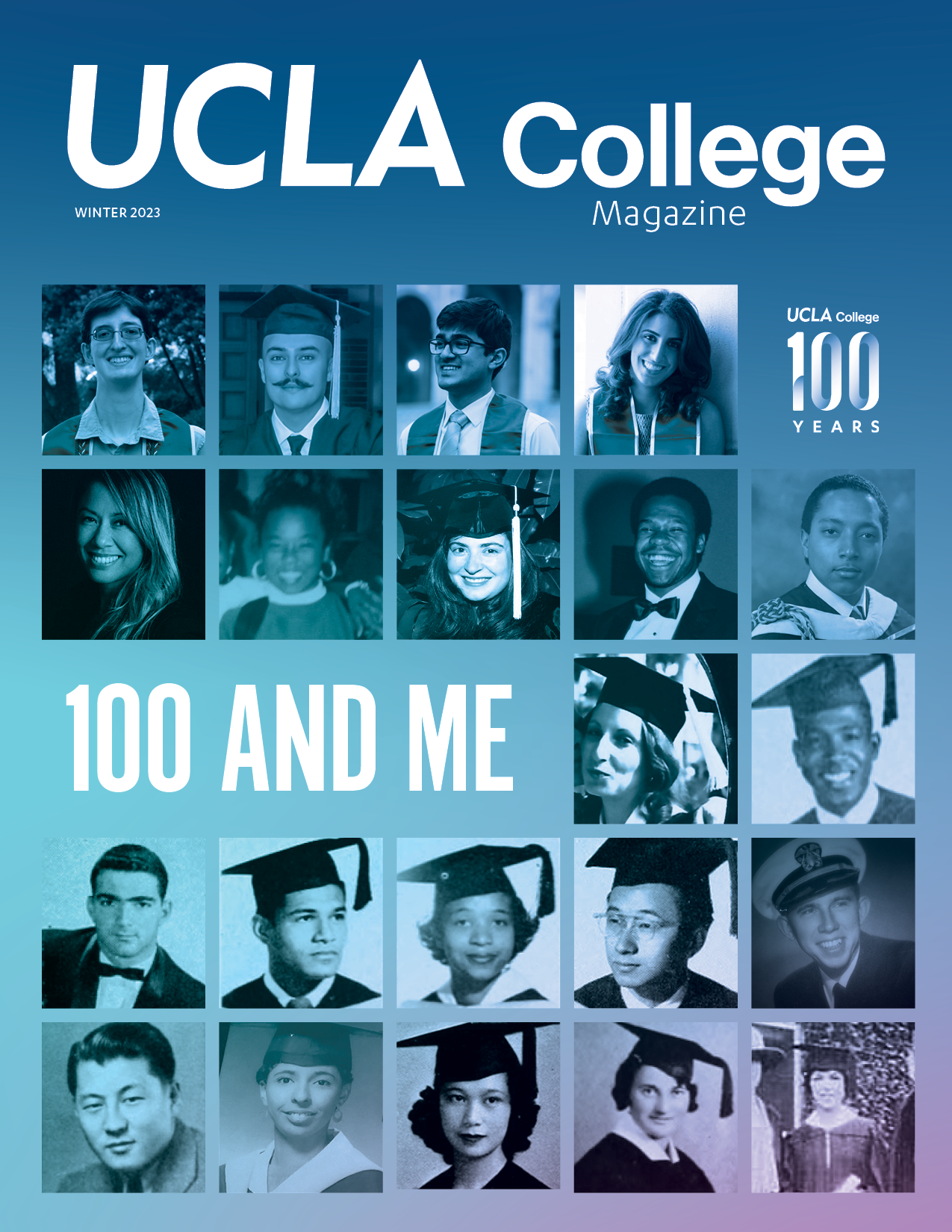With memories spanning decades, majors and interests, graduates of the UCLA College reflect on their time as students and their hopes for the College’s next 100 years. Read their stories below, and click here to share your own.
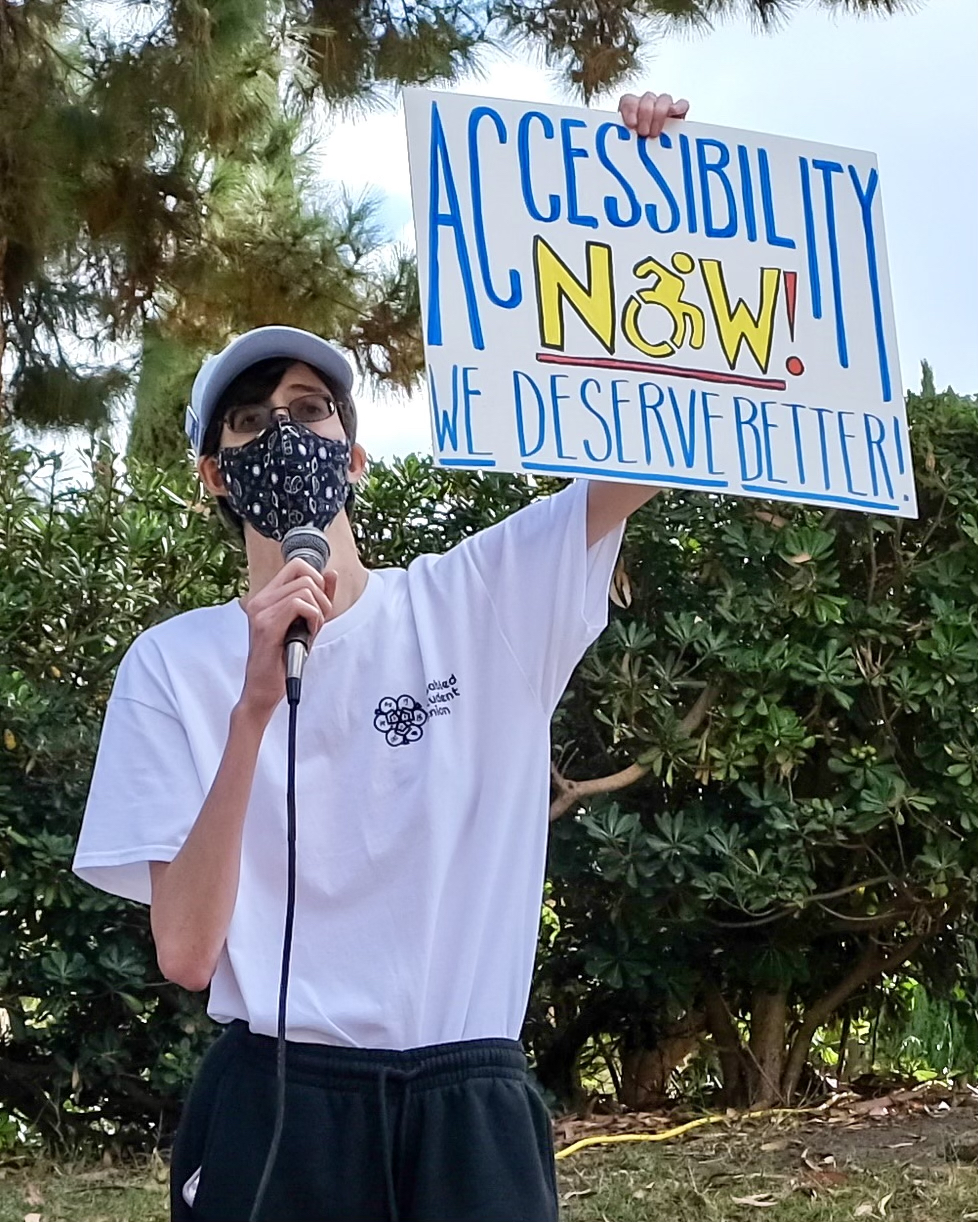
2020s
Exist Loudly
“I hope my UCLA College legacy is standing up for marginalized communities and screaming in the face of rejection, inaccessibility and dehumanization. I exist loudly so people like me know they are not alone.”
Christopher Ikonomou ’23 | Communication | Disability Studies Minor
I remember not being sure if I was making the right decision. The physical inaccessibility of campus coupled with feeling that my major wasn’t right for me were crushing in my first quarter. I changed my major and minor half a dozen times before I ended up with a combination that truly interested me and the relief was immeasurable. The food was unmatched the whole time and I met my best friend through random roommate assignment, so it wasn’t all stress.
I led my first protest in October 2021 for my fellow disabled students. I then became a part of campus history a few months later by leading the longest sit-in UCLA has seen alongside students of color. Standing up for my community and becoming a voice for our needs on campus was a privilege and a joy.
I won the Curtis Shepard LGBTQ Leadership Award at Lavender Graduation in 2023, voted by members of the UCLA community. It was an honor to be recognized by and in front of my amazing queer community. I also accepted the LGBTQ Organization of the Year Award on behalf of OutWrite.
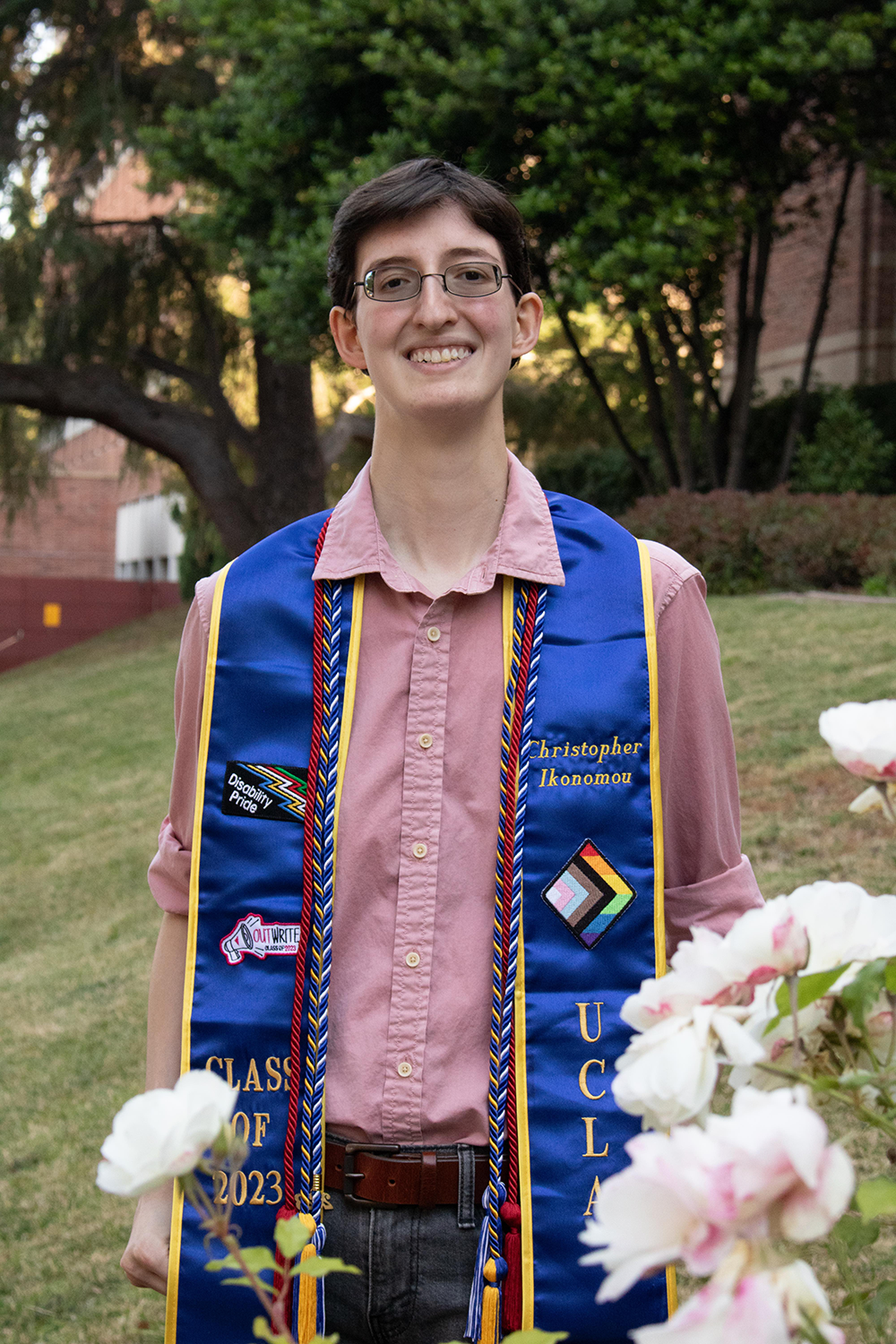
Christopher posing behind flowers on campus with his decorated graduation sash and cords. They represent OutWrite Newsmagazine, his disabled and queer identities, UCLA Student Media and the Disability Studies minor.
My most memorable moment working on OutWrite was completing our first print magazine after returning to campus in fall 2021. Our measly team of 12 brought OutWrite back to life after over a year of decay during lockdown. I essentially ran the entire project as managing editor and spent an uninterrupted week near the end of the quarter laying out all 28 pages as the only member who understood Adobe InDesign. I left my heart and soul in that issue and it started a two-year upward trajectory that changed my life. Here’s the link to it.
My favorite class was a tie between “Healthcare Ethics” with visiting professor Rosemarie Garland-Thomson and “Politics and Entertainment” with professor Stuart Soroka. The former was a gut-wrenching, raw and intellectual look into how the social and medical world treats disabled people taught by an outstanding disability justice scholar; it is a dream come true to be in class with someone whose academic work you love so much! The latter was what truly got me hooked into communication and deepened my understanding of how media impacts our biases and actions in the real world. Honorable mention to the “Interracial Dynamics in the U.S.” cluster in my first year for radicalizing me with the true history of America.
I loved being able to choose my specific path of interest within the communication major. I am most interested in entertainment and social justice, and the program gave me the opportunity to tailor my education to those passions. We were pushed to branch out just enough with the major requirements that I learned things I didn’t know I’d have an interest in until I took the class.
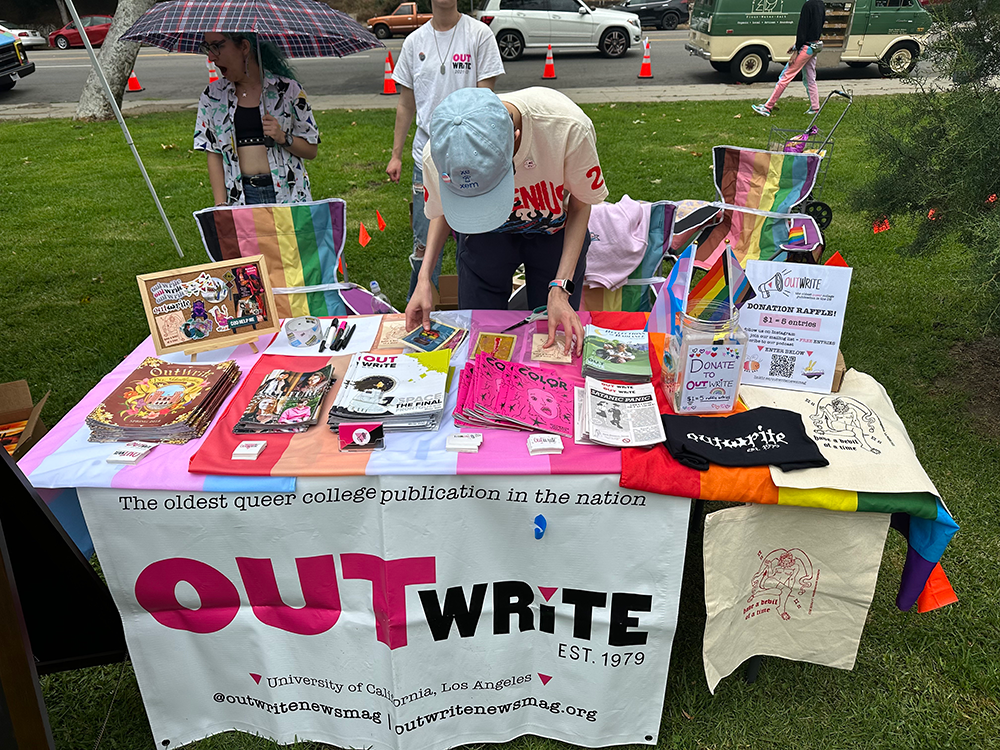
Christopher setting up OutWrite’s table at a local pride event during June 2023.
For disability studies, it was the community of the department. The support from professors and fellow students motivated me both academically and in my activism work. Learning from some openly disabled professors was an incredible experience that gave a relatability to the course content I had never experienced before.
I’d like everyone to know that switching from a STEM major to humanities or social sciences does not make you a weak student or less intellectual than your peers. There are dozens of majors and minors for a reason; explore and learn what you’re really interested in.
My favorite place on campus is not a place many will get to visit, but I have to say the OutWrite office within Student Media in Kerckhoff Hall. That place became my second home for my third and fourth years and I probably spent more time pouring my love and time into that magazine than I did completing schoolwork by the time I graduated. I hope my work made that room and organization as welcoming as it felt to me.
I hope the UCLA College stays on the cutting edge of culture and the right side of history. Academia should always be asking itself if it’s working to improve people’s lives, especially for those with the least privilege. If the answer is no, change is not only necessary but inevitable.
UCLA fundamentally altered how I see myself and how I experience the world. Let it mold you into a person you are proud to be.
Special thanks to the UCLA Alumni Association and UCLA Alumni Diversity Programs & Initiatives.
Visit them to further explore the UCLA College community.
![]()
Los Angeles, CA 90095


